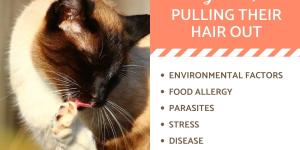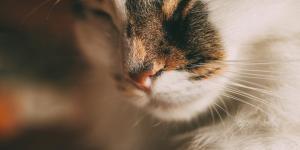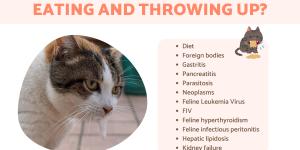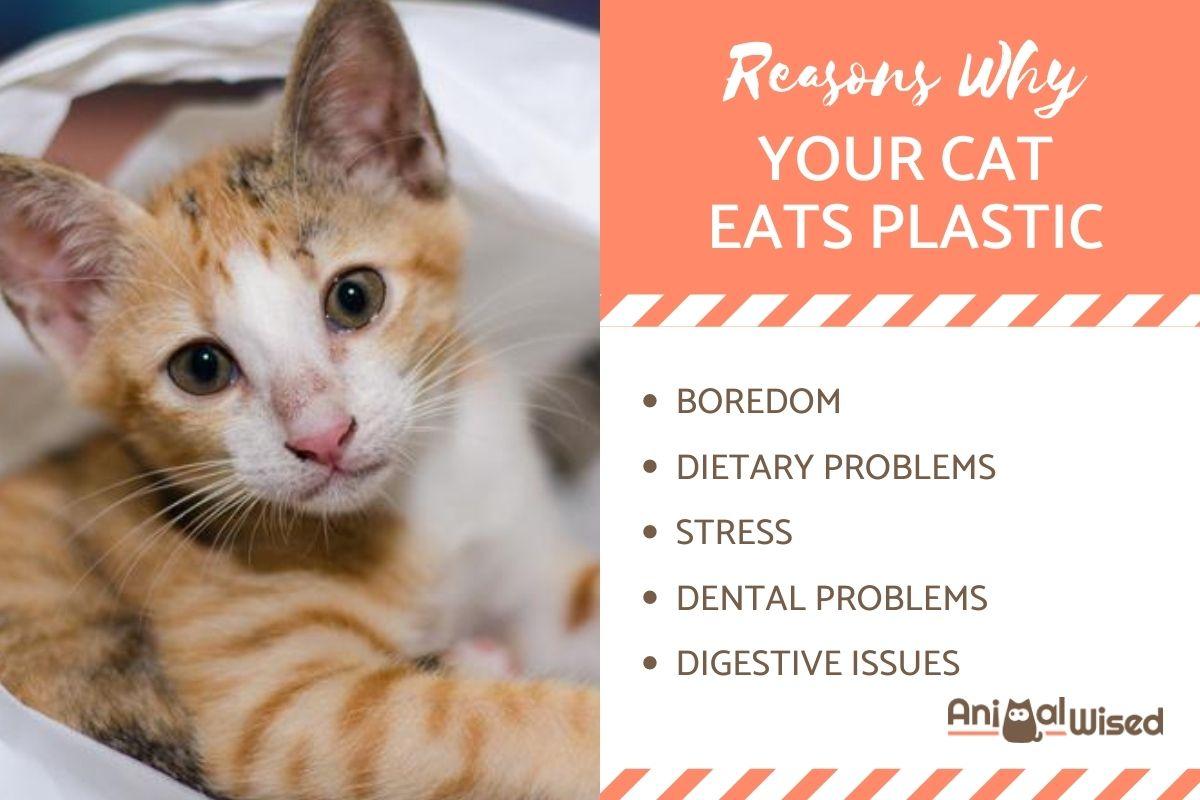My Cat is Eating Plastic - Why and What to Do About It



See files for Cats
Eating the correct food is vital for cats. Although we enjoy playing hunting games with our feline, hunting in the wild is not for fun. It is a necessity for survival. Mothers teach their young how to do it as soon as they can walk and they have an innate ability to stalk and pounce. Domestic cats don't have the same problem with access to food as they have in the wild, but their hunting instinct remains. This is why we often see them nibbling, licking or jumping on just about anything in the home?
If you find they are not only chasing random objects, but your cat is eating plastic, you might be a little concerned. At AnimalWised, we explain why this concern is valid and what you need to do about it.
Reasons why a cat eats plastic
Although the hunting instinct is part of why a cat may chew on plastic, actually eating plastic items is dangerous. Not only is plastic indigestible for cats, but it can provide a serious choking hazard. This may be one of the reasons why your cat keeps making choking noises. While it is possible the cat may only have accidentally ingested some plastic material, the reasons they may eat it on purpose include:
- Boredom
- Dietary problems
- Stress
- Dental problems
- Digestive issues
We look at these different reasons why your cat is eating plastic in the sections below.
1. Cat eating plastic due to boredom
A bored cat develops behavioral problems. One way to express such problems is the habit of chewing and eating almost anything in their environment. This includes eating plastic. If a cat doe snot have the necessary stimuli to keep them engaged, they will not expend their energy in a healthy way. As their guardians, it our responsibility to provide the necessary environmental enrichment to avoid boredom. This includes providing toys, game and simply spending time with them.
Chewing plastic and other materials our of boredom is particularly common in cats living in apartments. Having no access to the outdoors limits what they can do. Similarly, those which do not have any other animals or people to interact with can develop boredom.

2. Eating plastic due to dietary problems
There is a psychological disorder called pica. With this issue, the cat feels the need to eat inedible objects including plastic, but also commonly eating dirt. Although this problem can be related to stress, trauma or even boredom, it can also be the result of a dietary issue. If the cat is not receiving enough nutrients in their diet, they may eat other items to get the nutrients they don't have.
If this is the case with your cat, you will need to review the food you give to your cat. It is also important you take them to the veterinarian. Many different disease can affect the nutrition the cat needs. Even advanced age will mean the cat needs a different diet. The vet will be able to assess the cat's health and recommend the correct nutrition.
3. Eating plastic due to stress
Stress is capable of having a severe impact on the physical and emotional health of your cat. It could be one of the reasons why they are eating plastic. Various factors contribute to stress. However, it is important to remember cats are animals of routine. If a new member enters the family, you move house or you change almost anything in their environment, your cat will likely suffer stress and anxiety.
A cat may be eating the plastic as a form of stereotypy. These are repetitive behaviors without an obvious cause. When the repetitive behavior is eating plastic (pica is just one type of stereotypy), the results can be very dangerous. If you think this is the case, you will need to look out for other signs your cat may be stressed and take them to a veterinarian.

4. Eating plastic due to dental problems
Cleaning your cat's teeth should be part of your responsibility as a cat guardian. If we don't, it may lead to dental problems. If your cat has something stuck in their teeth, they may chew some plastic as a means to remove it. Also, if a cat has pain in the teeth or gums, they may chew on different objects to relieve the pain. Since cats do not always show signs of pain easily, they may resort to chewing plastic.
5. Eating plastic due to digestive problems
As with humans, cats will feel heavy after a lot of food. Since they don't have antacids at hand, they may do something else to speed up the process of digestion. One of these methods is to chew plastic. However, in these cases, they will not ingest the material. Chewing plastic or anything else which is hard helps them to secrete enzymes which stimulate the digestive process. In this way the cat may rid themselves of the feeling of heaviness sooner than expected.
If this is the reason that justifies your cat eating plastic, you should review the amount of daily food you offer them and make sure you provide the correct amount.

Is there something on the plastic?
Cats have a very acute sense of smell. If there is a scent on a piece of plastic, they may be able to sense it and be drawn to it. For example, if you have a plastic bag with some groceries in it, then they may try to eat it thinking it is food. Similarly if you purchased some catnip and they chew the bag it was in.
Some plastic materials might in themselves encourage a cat to eat it. Biodegradable bags are often made of corn fiber which might draw the cat, even if we cannot smell anything ourselves. Others contain lanolin or pheromones which attract the cat. Even the sound of a plastic bag rustling can attract them, although it doesn't necessarily mean they will eat it.
If you give a cat food in a plastic dish, they may even chew on this due to food residue. However, cats should not eat from plastic dishes. It can cause acne on their chin as well as provide other problems.
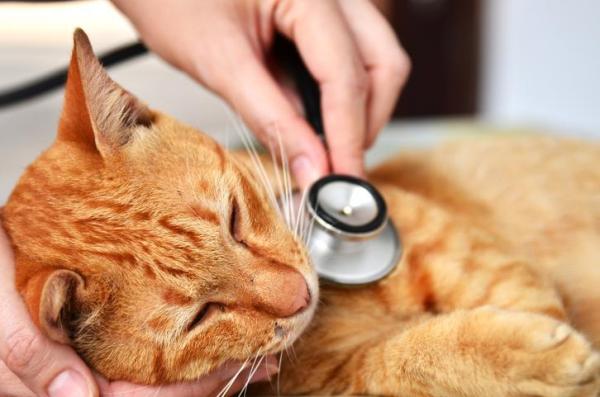
What to do if your cat is eating plastic
Eating plastic is a behavior that should never be ignored. Not only is there the risk of the cat choking, but the material can become stuck in their digestive tract. Plastic stuck in the cat's gastrointestinal system can be fatal.
Observe the cat's behavior and look for any related symptoms. Think about the context of your situation. Have you moved, recently has a newborn baby or made any changes which would cause them stress? Have you changed their food? Or have you noticed any symptoms of disease?
Go to the veterinarian and explain the situation. They will perform a physical examination and perform any necessary tests. They may recommend changing their diet, offering them more attention or changing something in their diet. Practically speaking, we should also reduce the amount of plastic in the home to which the cats have access.
If you think your cat is eating plastic due to stress, take a look at our video below to learn more:

This article is purely informative. AnimalWised does not have the authority to prescribe any veterinary treatment or create a diagnosis. We invite you to take your pet to the veterinarian if they are suffering from any condition or pain.
If you want to read similar articles to My Cat is Eating Plastic - Why and What to Do About It, we recommend you visit our Other health problems category.


